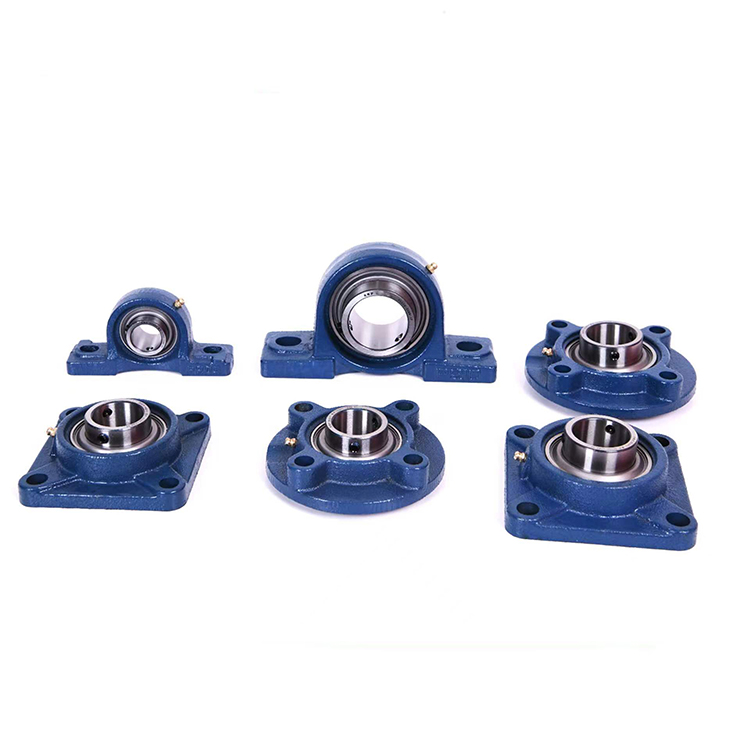Sep . 25, 2024 16:38 Back to list
pillow block spherical bearing
Understanding Pillow Block Spherical Bearings
Pillow block spherical bearings play an essential role in various industrial and engineering applications due to their versatility, load-bearing capacity, and ease of installation. These components are integral to many machinery systems, providing stable support while allowing for freedom of movement in different directions. In this article, we will delve into the intricacies of pillow block spherical bearings, their design, features, applications, and advantages.
What are Pillow Block Spherical Bearings?
Pillow block bearings consist of a housing, usually made from cast iron, steel, or plastic, and a bearing insert that can handle radial loads. The ‘pillow block’ refers to the shape of the housing, which resembles a block with rounded edges. This design often allows the bearing to be mounted on a flat surface easily. Spherical bearings, on the other hand, have an inner ring that is shaped like a sphere, allowing misalignment between the shaft and the housing. This characteristic is vital in applications where shaft alignment cannot be perfectly maintained, such as in heavy-duty machinery, conveyors, and robotics.
Design and Features
The design of pillow block spherical bearings offers several key features that set them apart from traditional bearings. The most notable characteristic is their ability to accommodate angular misalignments, which can occur due to thermal expansion, manufacturing tolerances, or wear and tear. The spherical design allows for rotation and tilting motions, which provides flexibility that rigid bearings cannot offer.
Pillow block spherical bearings usually incorporate various seals and shields to protect the internal components from dirt, moisture, and contaminants, thereby prolonging their lifespan. They can be found in a range of sizes and load capacities, making them suitable for a multitude of heavy-duty applications.
Applications
The applications of pillow block spherical bearings are vast and varied
. They are commonly utilized in1. Manufacturing Equipment These bearings are often found in conveyor systems, assembly lines, and material handling systems, where consistent motion and load distribution are critical.
pillow block spherical bearing

2. Agricultural Machinery Equipment such as tractors and harvesters utilize pillow block bearings for their durability and ability to handle harsh operating environments.
3. Automotive and Aerospace High-performance vehicles and aircraft components often rely on these bearings for their lightweight and robust properties.
4. Industrial Machines Many pumps, fans, and compressors benefit from the use of pillow block spherical bearings to ensure smooth operation and reduce downtime.
Advantages of Pillow Block Spherical Bearings
The advantages of using pillow block spherical bearings are manifold. Firstly, their capacity to accommodate misalignment reduces the risk of premature failure due to shaft bending or vibration. This feature alone can lead to significant maintenance cost savings.
Additionally, the easy installation and replacement make them user-friendly, allowing technicians to quickly address maintenance issues and reducing equipment downtime. Their robust construction allows them to operate effectively in demanding environments, including high-speed and heavy-load applications.
Another key advantage is their versatility. Pillow block spherical bearings can be customized to meet specific industry or application requirements, ensuring optimal performance across varied conditions.
Conclusion
In conclusion, pillow block spherical bearings are crucial components in modern machinery and industrial systems. Their unique design allows for superior performance in applications requiring flexibility and durability. By understanding the characteristics and advantages of these bearings, engineers and technicians can make informed decisions when selecting the appropriate component for their specific needs, ultimately leading to enhanced efficiency and reliability in their operations. With their broad range of applications, pillow block spherical bearings will continue to play a vital role in the evolution of technology and manufacturing processes.
Latest news
-
25MM 2 BOLT UCFLX05-14 Flange bearing unit( oval)
NewsMar.07,2025
-
4 bolt UCF 200 series Pillow block bearings
NewsMar.07,2025
-
25MM 2 BOLT UCFLX05-14 Flange bearing unit( oval)
NewsMar.07,2025
-
UCF216-50 4-Bolt Flange Housing Square Bearing
NewsMar.07,2025
-
25MM 2 BOLT UCFLX05-14 Flange bearing unit( oval)
NewsMar.07,2025
-
spherical roller bearing material exporter
NewsMar.07,2025





